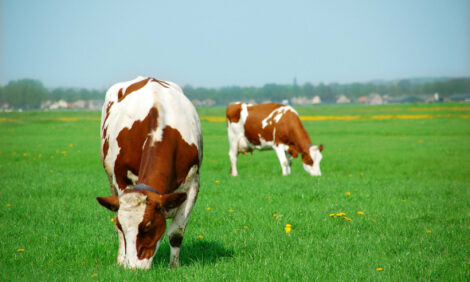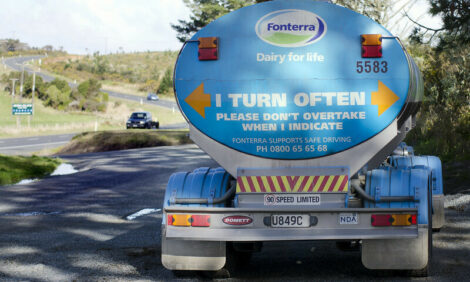



Only Targeting Cattle will not stop TB in Wales
UK - Targeting control measures only at cattle will not stop the advance of bovine TB - that is the view NFU Cymru will put forward, with the backing of scientific evidence, to the Welsh Assembly’s Rural Development Sub-Committee when it meets at the Royal Welsh Show on Wednesday, 25 July 2007.The Welsh Assembly’s Rural Development Sub-Committee will be taking evidence during this year’s Royal Welsh Show from NFU Cymru on the Independent Scientific Group (ISG) Report on bovine TB and on the implementation of the recommendations of the EPC (Environment, Planning and Countryside Committee) following its inquiry into bovine TB.
NFU Cymru will say that it does not accept that a ‘holistic’ approach is being taken to contain the spread of disease as recommended by the EPC Committee. Measures implemented continue to focus on cattle despite the fact that the ISG report acknowledges that infected badgers are a significant cause of disease in cattle.
Dai Davies, NFU Cymru President said, “NFU Cymru will continue to push home its message to the Rural Development Sub-Committee that thorough, regular culling of diseased badgers, over relatively large areas bound by hard physical boundaries would produce a significant reduction of bovine TB.
“We will tell the Sub-Committee that we accept culling, as practised in the Randomised Badger Culling Trial (RBCT), did cause perturbation and did result in disease being spread to herds on the perimeter of culling zones. However, that was because of incomplete and inefficient culling strategies that were tested in the trials. NFU Cymru does not accept that a culling strategy that largely avoids the problem of perturbation cannot be devised, particularly given the experience of other culling programmes.”
NFU Cymru will also point out to the Sub-Committee that the ISG Report suggests that cattle movements could be controlled by zoning the country into relatively low disease risk and high risk areas and by prohibiting animal movement from high to low risk areas or by categorising farms as of either low or high risk status and to control movement between these categories. NFU Cymru could not support such approaches as pre-movement test results indicate that cattle movement is not a significant cause of disease spread. The danger is that such an approach could create a two-tier market and result in lower prices for those designated as ‘high-risk’.
Dai Davies said, “There is a danger that retailers’ buying patterns would quite unjustifiably be based on risk status when in fact there is no reason other than a marketing ploy for such an approach. The whole infrastructure of the industry and ancillary industries could be jeopardised.”
NFU Cymru will give its evidence to the Welsh Assembly’s Rural Development Sub-Committee on Wednesday morning at the Royal Welsh Show.
For more information On Bovine Tuberculosis (TB), click here.
TheCattleSite News Desk


